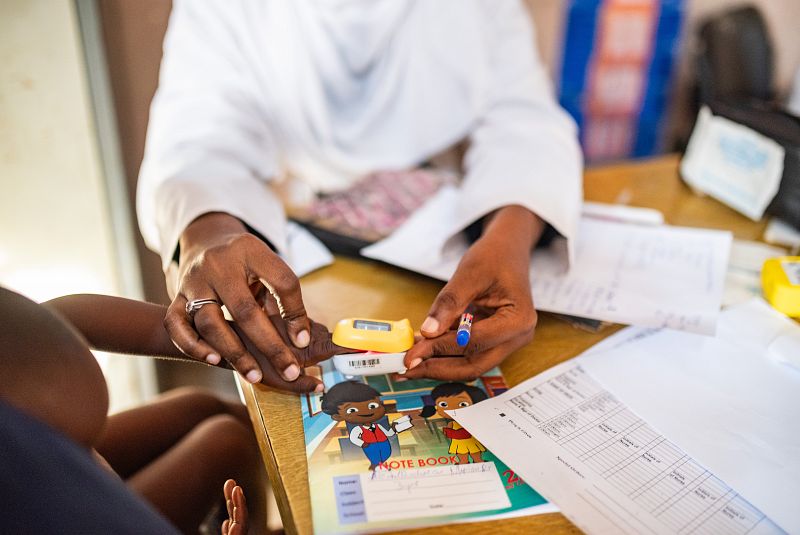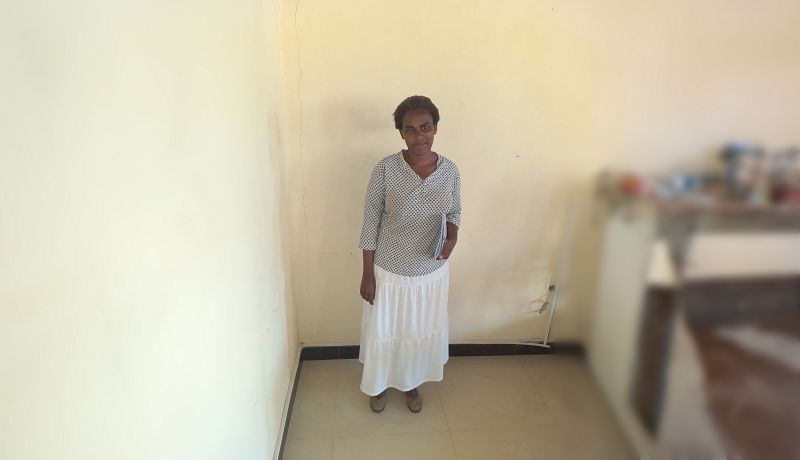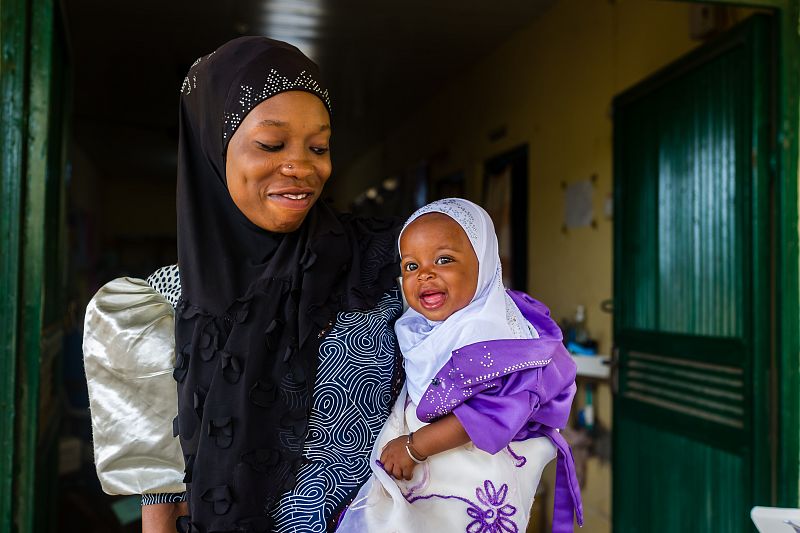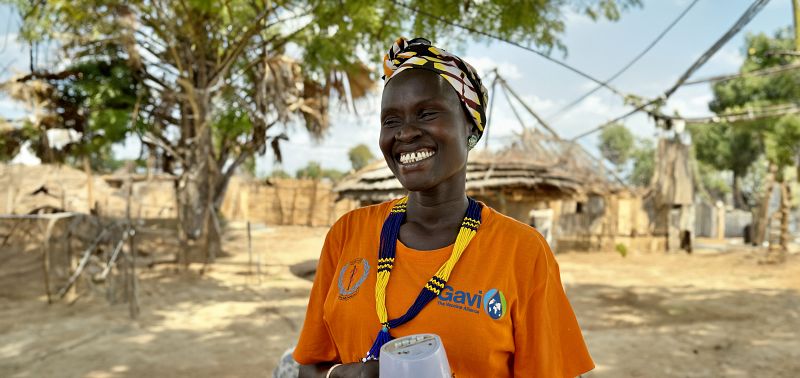Publications
Explore our publications to find useful evidence, lessons and recommendations from our work across Africa and Asia
Type
- Advocacy and positioning
- Advocacy briefs
- Advocacy reports
- Annual reviews
- Brochures
- Capacity statements
- Position statements
- Conference
- Briefing notes
- Posters
- Presentations
- Guidance and toolkits
- Guidance
- Training materials
- Learning
- Case studies
- Infographics
- Insight briefs
- Learning briefs
- Learning papers
- Newsletters
- Research and Technical
- Journal articles
- Project briefs
- Project reports
- Research briefs
- Synopses
- Technical briefs
Keyword
- ASTMH
- Advocacy
- COVID-19
- Capacity development
- Case management
- Case study
- Chemoprevention
- Child survival
- Climate
- Community delivery
- Costing and economic impact evaluation
- Data-informed decision-making
- Diagnosis
- Digital health
- Elimination
- Evidence generation
- Gender
- Genetic modification
- Health financing
- Health system strengthening
- Learning
- Logistics
- MNCH
- Malaria in pregnancy
- Monitoring and evaluation
- PMC
- Philanthropy
- Policy development
- Private sector
- Quality improvement
- Research
- Resistance management
- SBC
- SDGs
- SMC
- Scaled implementation
- Scholarships
- Surveillance
- Treatment
- Universal health coverage
- Urbanisation
- Vaccines
- Vector control
- Webinars
- iCCM
Diseases
Country
Language
Reset all search optionsCurrent search filters (20 results match ALL terms):
Gender
 02/01/2024
Journal article
02/01/2024
Journal article
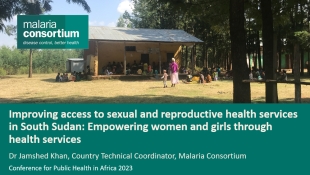 27/11/2023
Presentation
27/11/2023
Presentation
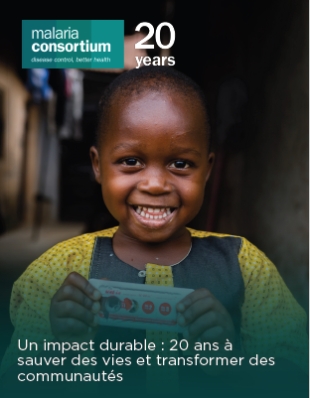 08/11/2023
Annual review
08/11/2023
Annual review
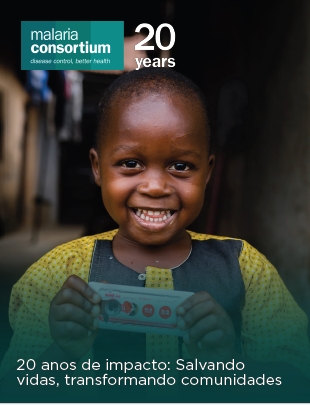 08/11/2023
Annual review
08/11/2023
Annual review
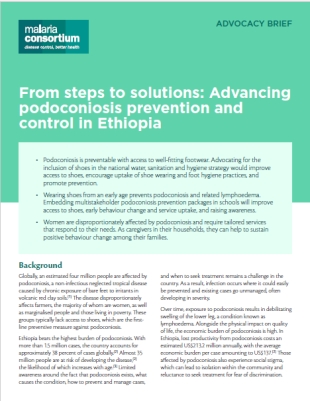 31/10/2023
Advocacy brief
31/10/2023
Advocacy brief
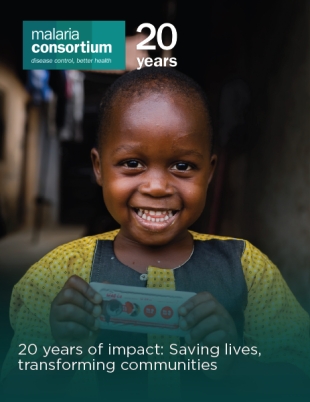 18/10/2023
Annual review
18/10/2023
Annual review
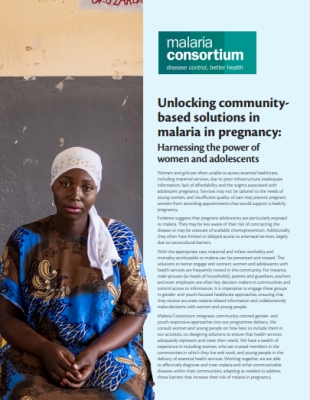 10/05/2023
Brochure
10/05/2023
Brochure
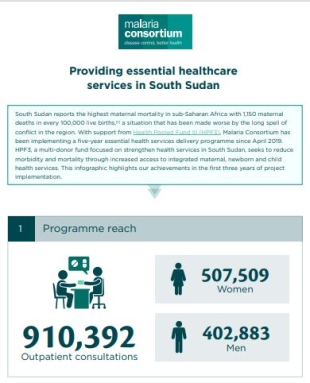 23/02/2023
Infographic
23/02/2023
Infographic
 12/01/2023
Journal article
12/01/2023
Journal article
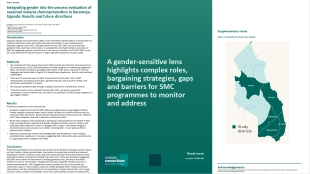 01/11/2022
Poster
01/11/2022
Poster
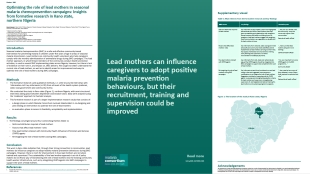 31/10/2022
Poster
31/10/2022
Poster
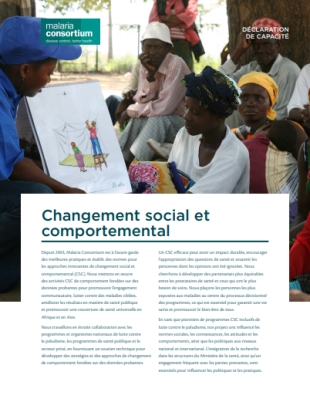 26/09/2022
Capacity statement
26/09/2022
Capacity statement
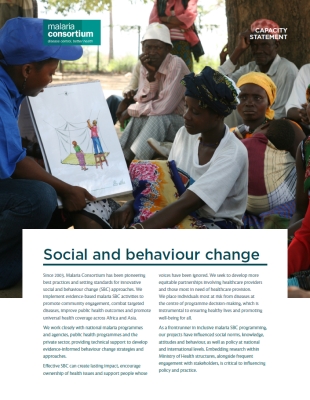 12/04/2022
Capacity statement
12/04/2022
Capacity statement
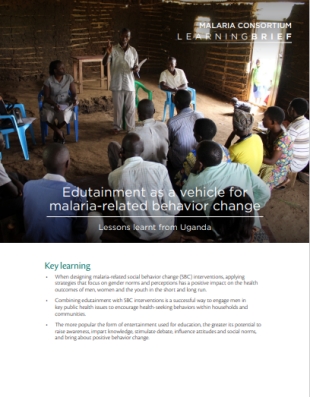 25/01/2022
Learning brief
25/01/2022
Learning brief
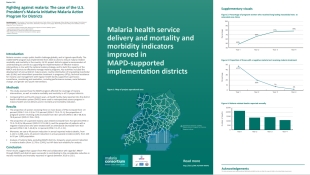 16/11/2021
Poster
16/11/2021
Poster
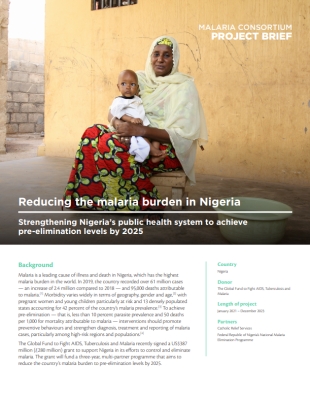 10/08/2021
Project brief
10/08/2021
Project brief
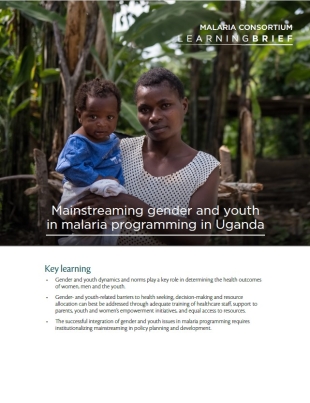 30/10/2020
Learning brief
30/10/2020
Learning brief
 13/12/2019
Journal article
13/12/2019
Journal article
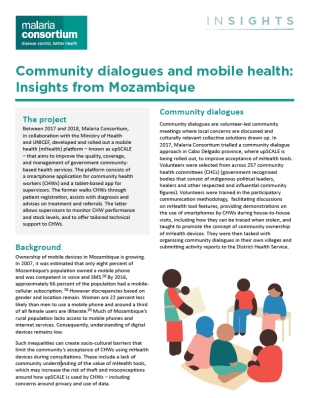 13/12/2018
Insight brief
13/12/2018
Insight brief
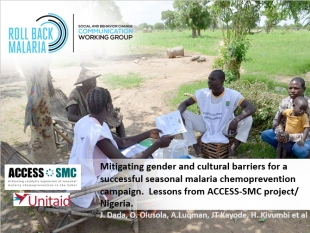 18/07/2017
Presentation
18/07/2017
Presentation
Gender
 02/01/2024
Journal article
02/01/2024
Journal article
Urban–rural differences in SMC coverage and characteristics of target populations in nine states of Nigeria
This study investigated urban–rural differences in seasonal malaria chemoprevention (SMC) coverage and other programme outcomes, as well as child and caregiver characteristics of target populations in nine implementing states in… 02/01/2024This study investigated urban–rural differences in seasonal malaria chemoprevention (SMC) coverage and other programme outcomes, as well as child and caregiver characteristics of target populations in nine implementing states in Nigeria during the 2022 SMC round.
 27/11/2023
Presentation
27/11/2023
Presentation
Improving access to sexual and reproductive health services in South Sudan: Empowering women and girls through health services
A four-year gender equality and social inclusion programme has worked with communities to overcome the social stigma that prevents teenagers and young women accessing sexual and reproductive health services 27/11/2023A four-year gender equality and social inclusion programme has worked with communities to overcome the social stigma that prevents teenagers and young women accessing sexual and reproductive health services
 08/11/2023
Annual review
08/11/2023
Annual review
Un impact durable : 20 ans à sauver des vies et transformer des communautés
À l’occasion du 20e anniversaire du Malaria Consortium, donnons un aperçu de ce que nous avons accompli et de la manière dont nous cherchons à relever les principaux défis qui… 08/11/2023À l’occasion du 20e anniversaire du Malaria Consortium, donnons un aperçu de ce que nous avons accompli et de la manière dont nous cherchons à relever les principaux défis qui restent à relever.
 08/11/2023
Annual review
08/11/2023
Annual review
20 anos de impacto: Salvando vidas, transformando comunidades
Neste 20º aniversário do Malaria Consortium, refletimos sobre a jornada até agora e fornecemos insights sobre o que alcançamos e como procuramos enfrentar os principais desafios que permanecem. 08/11/2023Neste 20º aniversário do Malaria Consortium, refletimos sobre a jornada até agora e fornecemos insights sobre o que alcançamos e como procuramos enfrentar os principais desafios que permanecem.
 31/10/2023
Advocacy brief
31/10/2023
Advocacy brief
From steps to solutions: Advancing podoconiosis prevention and control in Ethiopia
We aim to work with key stakeholders to accelerate the control of podoconiosis by creating universal access to better quality preventive measures and healthcare. 31/10/2023We aim to work with key stakeholders to accelerate the control of podoconiosis by creating universal access to better quality preventive measures and healthcare.
 18/10/2023
Annual review
18/10/2023
Annual review
20 years of impact: Saving lives, transforming communities
On this, the 20th anniversary of Malaria Consortium, we reflect on the journey so far and provide insights into what we have achieved and how we seek to address the… 18/10/2023On this, the 20th anniversary of Malaria Consortium, we reflect on the journey so far and provide insights into what we have achieved and how we seek to address the key challenges that remain.
 10/05/2023
Brochure
10/05/2023
Brochure
Unlocking community-based solutions in malaria in pregnancy: Harnessing the power of women and adolescents
We integrate community-centred gender- and youth-responsive approaches into our programme delivery. 10/05/2023We integrate community-centred gender- and youth-responsive approaches into our programme delivery.
 23/02/2023
Infographic
23/02/2023
Infographic
Providing essential healthcare services in South Sudan
Through HPF3, a multi-donor fund focused on strengthening health services, we have supported increased access to integrated health services. 23/02/2023Through HPF3, a multi-donor fund focused on strengthening health services, we have supported increased access to integrated health services.
 12/01/2023
Journal article
12/01/2023
Journal article
Optimising the role of ‘lead mothers’ in seasonal malaria chemoprevention campaigns: Formative research in Kano state, northern Nigeria
Lead mothers can and do influence caregivers to adopt healthy behaviours during SMC campaigns. But their recruitment, training and supervision can be improved. 12/01/2023Lead mothers can and do influence caregivers to adopt healthy behaviours during SMC campaigns. But their recruitment, training and supervision can be improved.
 01/11/2022
Poster
01/11/2022
Poster
Integrating gender into the process evaluation of SMC in Karamoja, Uganda: Results and future directions
A gender-sensitive lens highlights complex roles, bargaining strategies, gaps and barriers for SMC programmes to monitor and address. 01/11/2022A gender-sensitive lens highlights complex roles, bargaining strategies, gaps and barriers for SMC programmes to monitor and address.
 31/10/2022
Poster
31/10/2022
Poster
Optimising the role of lead mothers in SMC campaigns: Insights from formative research in Kano state, northern Nigeria
Lead mothers can influence caregivers to adopt positive malaria prevention behaviours, but their recruitment and supervision could be improved. 31/10/2022Lead mothers can influence caregivers to adopt positive malaria prevention behaviours, but their recruitment and supervision could be improved.
 26/09/2022
Capacity statement
26/09/2022
Capacity statement
Changement social et comportemental
En tant que pionniers de programmes CSC inclusifs de lutte contre le paludisme, nos projets ont influencé les normes sociales, les connaissances et les comportements. 26/09/2022En tant que pionniers de programmes CSC inclusifs de lutte contre le paludisme, nos projets ont influencé les normes sociales, les connaissances et les comportements.
 12/04/2022
Capacity statement
12/04/2022
Capacity statement
Social and behaviour change
We implement evidence-based malaria SBC activities to promote community engagement and promote universal health coverage across Africa and Asia. 12/04/2022We implement evidence-based malaria SBC activities to promote community engagement and promote universal health coverage across Africa and Asia.
 25/01/2022
Learning brief
25/01/2022
Learning brief
Edutainment as a vehicle for malaria-related behavior change: Lessons learnt from Uganda
This malaria-related social behavior change intervention project in Uganda successfully applies strategies that focus on gender norms and perceptions. 25/01/2022This malaria-related social behavior change intervention project in Uganda successfully applies strategies that focus on gender norms and perceptions.
 16/11/2021
Poster
16/11/2021
Poster
Fighting against malaria: The case of the U.S. President’s Malaria Initiative Malaria Action Program for Districts
Malaria health service delivery and mortality and morbidity indicators improved in MAPD-supported implementation districts. 16/11/2021Malaria health service delivery and mortality and morbidity indicators improved in MAPD-supported implementation districts.
 10/08/2021
Project brief
10/08/2021
Project brief
Reducing the malaria burden in Nigeria
We support Nigeria’s National Malaria Elimination Programme to deliver interventions that are designed to develop capacity around reporting and case management. 10/08/2021We support Nigeria’s National Malaria Elimination Programme to deliver interventions that are designed to develop capacity around reporting and case management.
 30/10/2020
Learning brief
30/10/2020
Learning brief
Mainstreaming gender and youth in malaria programming in Uganda
Malaria Consortium's USAID MAPD project explored the gender- and youth-related norms that might be hindering effective malaria control in Uganda. 30/10/2020Malaria Consortium's USAID MAPD project explored the gender- and youth-related norms that might be hindering effective malaria control in Uganda.
 13/12/2019
Journal article
13/12/2019
Journal article
Gender-related factors affecting health seeking for neglected tropical diseases: Findings from a qualitative study in Ethiopia
This study applied a gender lens to health-seeking in Ethiopia for five neglected tropical diseases. 13/12/2019This study applied a gender lens to health-seeking in Ethiopia for five neglected tropical diseases.
 13/12/2018
Insight brief
13/12/2018
Insight brief
Community dialogues and mobile health: Insights from Mozambique
While ownership of mobile devices in Mozambique is growing fast, discrepancies based on gender and location remain. The socio-cultural barriers such inequalities create may limit the community’s acceptance of health… 13/12/2018While ownership of mobile devices in Mozambique is growing fast, discrepancies based on gender and location remain. The socio-cultural barriers such inequalities create may limit the community’s acceptance of health workers using mobile devices during consultations. In 2017, Malaria Consortium trialled…
 18/07/2017
Presentation
18/07/2017
Presentation
